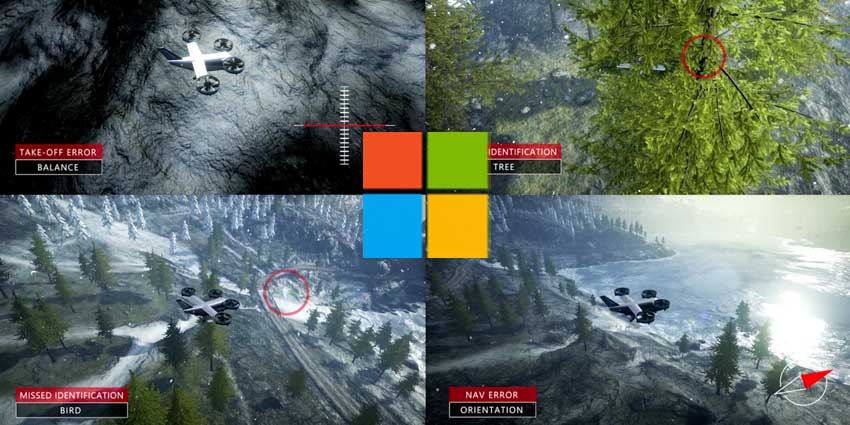Microsoft debuted Project AirSim, a novel platform to develop, train, and test autonomous aerial vehicles, at the Farnborough International Airshow, it was announced on Monday.
The new platform taps Microsoft Azure to simulate millions of high-fidelity flights to test and predict real-world scenarios across city and rural flight paths, requiring huge artificial intelligence (AI)-backed data streams and a massive library of “simulated 3D environments,” Microsoft explained in a blog post.
The limited preview solution combines sensors, AI, cloud technologies, and computing to “transform how we move people and goods, Microsoft’s Corporate Vice-President for Business Incubations in Technology and Research, Gurdeep Pall, said in a statement.
He added that firms would seek autonomous aircraft to tackle logistics problems across remote areas, wind farms, urban environments, congested roads and motorways, among others.
He continued, explaining,
“Autonomous systems will transform many industries and enable many aerial scenarios, from the last-mile delivery of goods in congested cities to the inspection of downed power lines from 1,000 miles away, but first we must safely train these systems in a realistic, virtualized world. Project AirSim is a critical tool that lets us bridge the world of bits and the world of atoms, and it shows the power of the industrial metaverse – the virtual worlds where businesses will build, test and hone solutions and then bring them into the real world”
What is Project AirSim?
Microsoft Research originally founded the Project as an open-source initiative and intended to develop it with more advanced machine learning (ML) technologies, leading to the end-to-end platform.
Customers in Advanced Aerial Mobility (AAM) will use the metaverse solution to guide and direct autonomous aircraft across simulated physical landscapes.
Balinder Malhi, Project Airsim’s Engineering Lead, said in a statement that few companies had built AI “at scale,” adding,
“We created Project AirSim with the key capabilities we believe will help democratize and accelerate aerial autonomy – namely, the ability to accurately simulate the real world, capture and process massive amounts of data and encode autonomy without the need for deep expertise in AI”
According to the Redmond, Washington-based firm, the solution hopes to reshape global standards in aerospace monitoring and regulations by working jointly with global standards organisations, regulatory bodies, and civil aviation authorities to build interoperability and rulebooks for deploying such technologies.
Pall added that Project AirSim would require rigorous testing for adverse weather conditions or GPS connectivity loss, leading to the potential certification of unmanned autonomous vehicles (UAVs).
The news comes as similar metaverse drone solutions entered the extended reality (XR) market, with firms such as Anarky Labs and Flyby Guys debuting their AirHUD augmented reality (AR) solution used with Microsoft’s HoloLens 2 and DJI drones.
Optelos also deployed a drone inspection solution to assist frontline workers with its turnkey inspection solution that provides access to data visualisation, digital twin, and AI software-as-a-service systems (SaaS).







